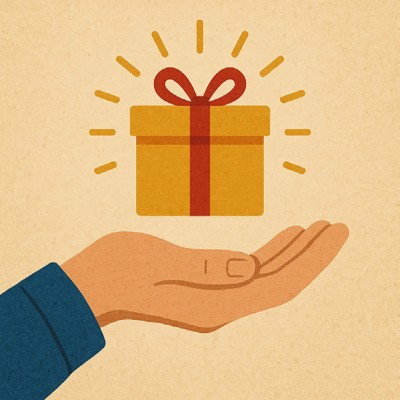
The first Rashi in Parshat Va’etchanan teaches us a powerful yesod about tefillah. The word va’etchanan is rooted in chanun, meaning to beseech. Rashi, quoting the Sifri, explains that while tzaddikim may have merit, they still plead with Hashem to answer them b’matnat chinam—as a free gift. Moshe Rabbeinu chose this form of prayer specifically because Hashem governs the world through kindness, giving without expectation.
Let’s reflect for a moment: From the beginning of life—before a person is even born—we are recipients of Hashem’s kindness. Our families, surroundings, shelter, clothing, nourishment—all of it comes from Him. Did any child earn these gifts through righteous deeds? Of course not. It’s all matnat chinam.
Chovos HaLevavos, in Shaar Avodat Elokim, emphasizes this point. We don’t receive blessings due to our merits; rather, we owe Hashem immense gratitude for all that we’ve already received. From the moment a person can recognize goodness—makir tov—he is obligated to express thanks. As we say in Nishmat, our words can never fully thank Hashem, but we must still try. And as we recite in the extended Tachanun on Mondays and Thursdays: “This is Your way—to do chesed chinam in every generation.”
So when we daven, we don’t demand or claim, “I’ve been good, You owe me!” Even the greatest tzaddikim never spoke this way. They knew that requesting matnat chinam opens the door for boundless blessing. Why? Because Hashem’s “hands” are far greater than ours.
Here’s a story that beautifully illustrates this point:
About 100 years ago in Yerushalayim, during times of great poverty, a young boy named Zundel walked through the shuk and spotted a large jar of candied cherries—a luxury he could only dream of. The Jewish vendor noticed him and offered him a handful for free. Zundel didn’t move. The vendor repeated the offer. Still, Zundel remained silent. Finally, the man reached in, grabbed a generous handful, and pressed it into Zundel’s palms. Overjoyed, Zundel rushed home to tell his mother. When she asked why he hadn’t taken the cherries himself, Zundel replied: “Momma, my hands are small—his hands are big. If I’d taken them, I’d have gotten a little. But when he gave them to me, I got so much more!”
Our deeds are limited. Our hands are small. But Hashem desires to give. Tefillah is how we access His boundless generosity. As Rav Moshe Shapiro ztz”l taught, the Heavenly treasury of matnat chinam is far greater than the one that rewards merit. Our Torah and mitzvot earn us something, but Hashem’s free kindness transcends all calculations.
One reason Tu B’Av is so significant is because of what happened after the fall of Beitar. For seven years following the massacre, the Romans refused to allow the burial of Jewish victims. The disgrace was unbearable. Worse still, as Tosfos and the Rosh record, the enemy used the bodies to build vineyard walls and fertilize their land with Jewish blood. They ignored the miracle that the bodies hadn’t decayed for years. This desecration caused unbearable pain.
When burial was finally permitted, it was a miracle of compassion—a matnat chinam—a spark of Divine kindness amid devastation. Hashem showed us then, as now, that He does not abandon us, even when we feel unworthy. This moment was so powerful that Chazal instituted the fourth brachah of Birkat HaMazon: HaTov v’HaMeitiv—acknowledging His continual acts of goodness.
Even now, with enemies surrounding us physically and spiritually, we cannot give in to despair. The 12-Day War with Iran was filled with open miracles. Israel prepared for mass casualties—and emerged with the unthinkable. Were we truly worthy of such salvation? Or was it another act of matnat chinam from a loving Father?
Now is the time to strengthen our bitachon, to deepen our tefillah, and to be makir tov. On this Tu B’Av, let us thank Hashem with full hearts for all that He has done—and all that He continues to do. May we merit the ultimate matnat chinam: the arrival of Mashiach and the rebuilding of the Beis HaMikdash, speedily in our days.
R’ Dovi Chaitovsky and his family have the zechut to live in Eretz Yisrael, where he dedicates himself to Torah learning and teaching in Yerushalayim Ir HaKodesh. His divrei Torah often draw from the shiurim of Rav Yisrael Altusky, shlit"a, which can be heard at kolhalashon.com.
Tefillah, Free Gifts & Tu B’Av
Typography
- Smaller Small Medium Big Bigger
- Default Helvetica Segoe Georgia Times
- Reading Mode




